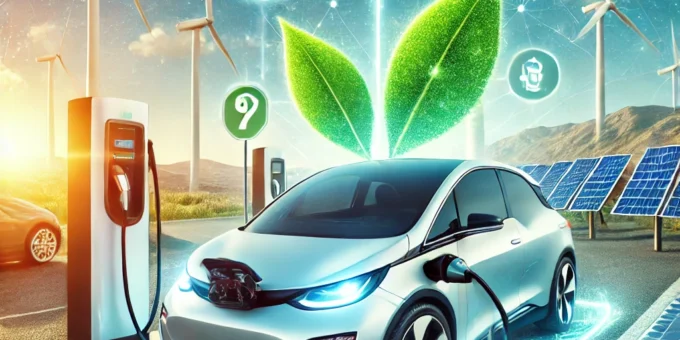
The automotive industry is undergoing a revolution, with electric vehicles (EVs) emerging as the centerpiece of sustainable driving. As concerns about climate change, air pollution, and fossil fuel dependency intensify, EVs offer a cleaner, smarter, and more efficient alternative. This guide explores why electric vehicles represent the future of mobility and their role in creating a greener planet.
What Makes Electric Vehicles Sustainable?
1. Zero Tailpipe Emissions
Unlike traditional internal combustion engine (ICE) vehicles, EVs produce no exhaust emissions, significantly reducing air pollution and greenhouse gas levels.
2. Renewable Energy Integration
- EVs can be powered by renewable energy sources like solar and wind.
- Home charging setups often integrate with renewable power systems, maximizing sustainability.
3. Reduced Dependence on Fossil Fuels
By replacing gasoline and diesel with electricity, EVs help decrease the demand for finite fossil fuel resources.
Environmental Benefits of Electric Vehicles
Cleaner Air Quality
- Cities adopting EVs experience lower levels of harmful pollutants like nitrogen oxides (NOx) and particulate matter.
- Health benefits include reduced respiratory illnesses and improved overall well-being.
Lower Carbon Footprint
- The lifecycle emissions of EVs, including production and operation, are generally lower than ICE vehicles.
- Advances in battery recycling and production methods are further reducing EV-related emissions.
Economic Advantages of Electric Vehicles
1. Lower Operating Costs
- Electricity is cheaper than gasoline or diesel, leading to significant savings over time.
- EVs have fewer moving parts, resulting in reduced maintenance costs.
2. Government Incentives
- Tax credits, rebates, and grants make EVs more accessible to consumers.
- Reduced registration fees and toll exemptions are additional perks in many regions.
3. Job Creation in Green Technology
- The EV industry is driving growth in renewable energy, battery manufacturing, and charging infrastructure sectors.
Technological Advancements Driving the EV Revolution
1. Improved Battery Technology
- Longer ranges: Modern EVs can travel over 300 miles on a single charge.
- Faster charging: Innovations in charging technology reduce wait times.
- Enhanced durability: New battery chemistries extend lifespan and efficiency.
2. Smart Features
- Connected cars offer features like real-time navigation, over-the-air updates, and remote diagnostics.
- Autonomous driving capabilities are increasingly integrated into EV designs.
3. Expanding Charging Infrastructure
- Rapid expansion of public and private charging networks makes EV ownership more convenient.
- Wireless and ultra-fast charging solutions are emerging to meet growing demand.
Challenges and Solutions for EV Adoption
1. Initial Cost Barrier
- Challenge: EVs often have a higher upfront cost than ICE vehicles.
- Solution: Government subsidies, declining battery costs, and increased competition are bridging the gap.
2. Range Anxiety
- Challenge: Concern over limited driving range and charging availability.
- Solution: Expanding charging networks and improving battery capacities are alleviating fears.
3. Battery Recycling and Sustainability
- Challenge: The environmental impact of battery production and disposal.
- Solution: Recycling programs and advancements in sustainable materials address these concerns.
The Role of Electric Vehicles in Global Sustainability Goals
1. Combating Climate Change
- EVs are pivotal in reducing transportation emissions, which account for a significant portion of global CO2 output.
- They align with international agreements like the Paris Climate Accord to limit global warming.
2. Supporting Renewable Energy Growth
- EVs complement renewable energy by utilizing excess electricity during off-peak hours.
- Vehicle-to-grid (V2G) technology allows EVs to store and return energy to the grid.
3. Promoting Urban Sustainability
- Adoption of EVs reduces noise pollution, creating quieter, more livable cities.
- Shared mobility solutions, such as electric ride-sharing, further enhance urban efficiency.